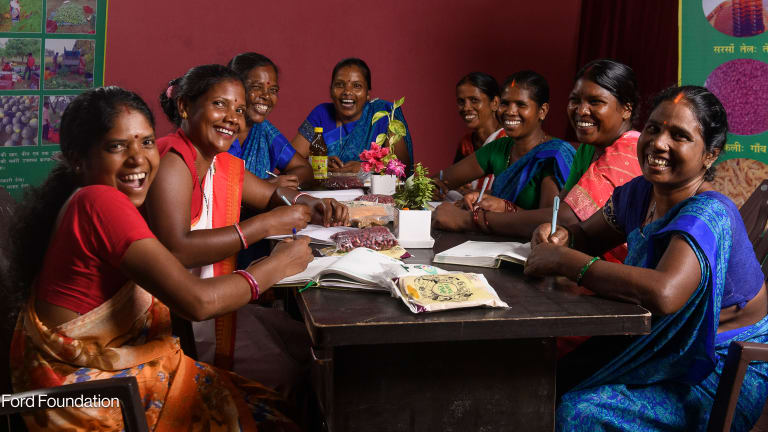
Education has long been recognized as a central driver of development. With the advent of the U.N. Sustainable Development Goals, its importance has now been amplified to include the role of lifelong learning in addition to primary and secondary education in the global community’s development arsenal. Higher education can and does offer a better future for societies that embrace its development potential.
As higher education claims its place among the international mechanisms put forward to achieve better and deeper development, it is important to acknowledge that it has a long history of helping societies strive for a better future. From the influence of German and French scholars arriving at New York’s New School in the 1930s and ‘40s to the central role that higher education played in Europe’s postwar development success, higher education has proved itself to be a force for shaping the world for the better.
In addition to its development function, higher education can also provide a solution for resolving some of the world’s most important crises. War and poverty may be an almost unstoppable force disrupting the lives of millions and impeding human progress, but higher education has the power to overcome this and put the lives of millions back on course. In connection with the Syrian crisis, there has been a growing realization among the international development community that higher education offers a real and lasting solution to the destruction that has blighted the lives of millions of Syrians. With millions having fled to the West, universities are beginning to offer more places to refugees in a concerted effort to utilize higher education to integrate new citizens and equip a new generation with the skills and knowledge that will be needed to rebuild the country. In Germany alone, 3 out of 4 universities have applied to take part in a 100 million pound ($145 million) ministry fund to encourage the integration of refugees into the higher education system.
Read related stories:
► How to get education technology right
► Universal education champions fight 'primary' battle of their own
► A push for education and livelihoods for refugees in Jordan
► Empowering girls through education in emergency situations
While universities in the West begin to do their bit for those who have made the long journey here, less attention has been paid to the higher education needs of Syrian refugees who haven’t moved beyond Syria’s neighboring countries. UNHCR estimates that there are 100,000 Syrian refugees in Turkey alone who are prime age to attend university, but prevented from continuing their education because of poverty and the inability to study in Turkish. In Jordan and Lebanon, the situation is similar, with financial constraints being the main reason preventing hundreds of thousands from continuing their education.
We are used to the power of higher education’s potential residing in its lecture halls, libraries and campuses. This unfortunately leaves an education deficit for those who need this power but cannot physically access the college campus. Fortunately, modern communication technology can help overcome this limitation. The proliferation of internet connectivity and the ubiquitous smartphone offer a route for academic interaction that can be extended to those who are denied access to higher education. The Jamiya Project aims to bring together European universities, Syrian academics, NGOs and the latest online learning technology to deliver ECTS accredited courses to Syrian refugees in Jordan, Lebanon and Turkey. Taking a technology-focused approach has the potential to efficiently link geographically dispersed Syrian education stakeholders together, deliver the most up-to-date pedagogy and democratise access to education for those who need it the most.
If it is done right, education can truly be a liberator. In our minds this means making education relevant, accessible and empowering. By reaching out to meet the students’ needs, we can offer flexible learning through Arabic and aim to address the education needs of those who otherwise would be denied their level education.The centrality of technology in education allows the development community to:
• Bring educators and students together in a way that previously wasn’t possible.
• Maintain a cohesiveness in an academic community that has been dispersed to various countries.
• Have a flexible approach to learning, ensuring that those students who might have to work or cannot reach the study centre at a specific time still can keep with their courses.
• Reach a far larger audience than the traditional classroom.
In order to be effective, courses must combine the best of western higher education standards and technologies with Arabic language delivery to ensure that those who cannot study — due to financial and linguistic constraints — are not left behind. Starting this year, we will run pilot applied IT and global studies courses with the University of Gothenburg and local NGO facilitators at refugee camps in the region.
We must look to the Syrian academic community to provide a solution, rather than relying on external forces. By bringing Syrian professionals into the project planning and including Syrian academics in the course development and delivery, the Jamiya Project aims to reconnect Syrian academics with Syrian students in an effort to ensure that academia is not a fatal casualty of the crisis.
Delivering higher education to Syrian refugees is an obvious solution for ensuring a brighter future. As those of us in the international development community know, we can and do make real and lasting changes to the lives of ordinary people while political solutions often lag behind. Utilizing technology has the potential to facilitate the role higher education can play in solving some of the complexities of the Syrian crisis in a more meaningful way than traditional university campuses can offer. The conceptual facility of offering higher education to a much broader cohort could have a real and lasting effect on the future of Syria.
Join the Devex community and access more in-depth analysis, breaking news and business advice — and a host of other services — on international development, humanitarian aid and global health.








